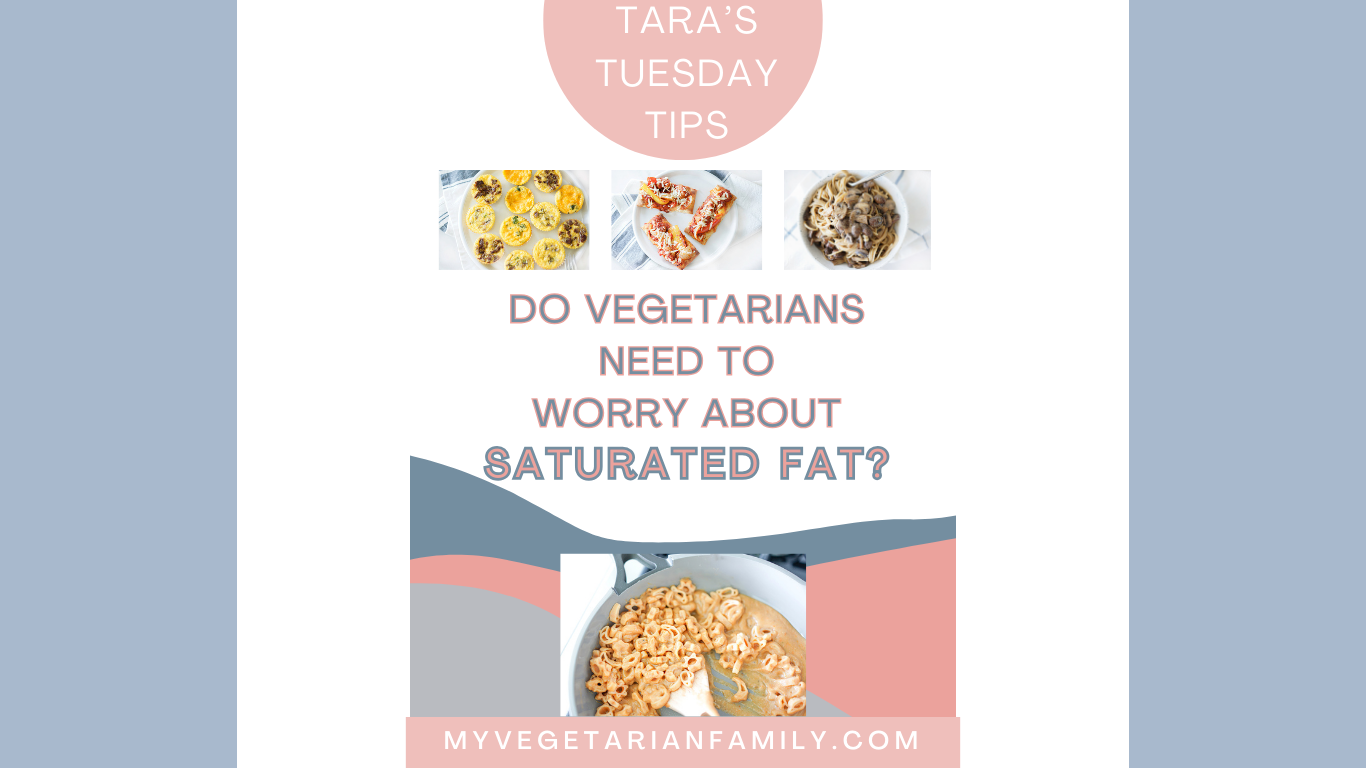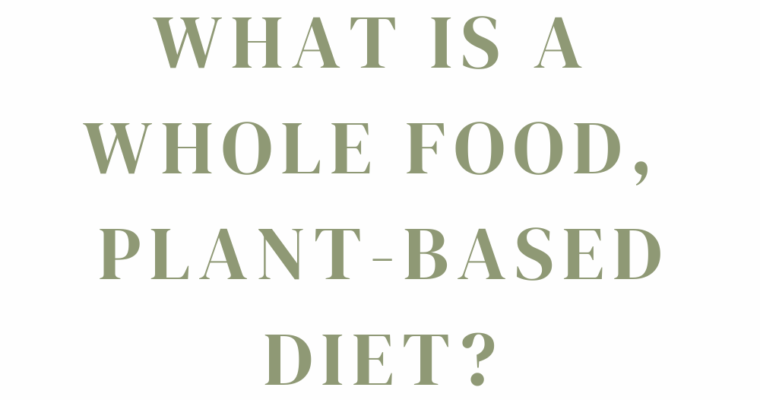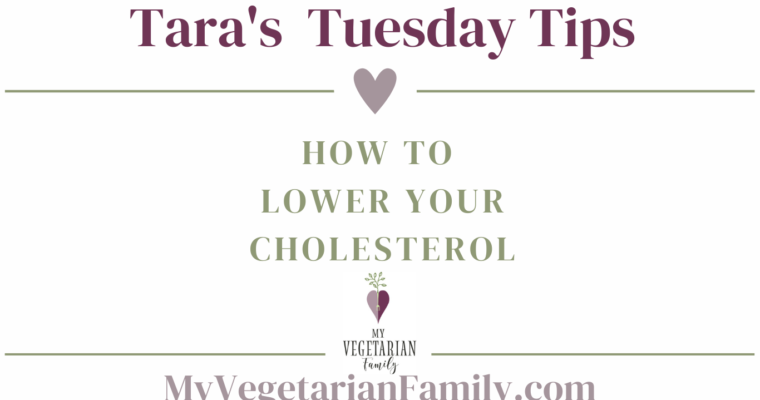Dietary fats have been on a popularity roller coaster over the last few decades. Eat fat, don’t eat fat, fat is good, fat is bad. Where fats land today in the public eye is still up for debate. One thing we do know, is that we need fat. Fats are essential to our bodily functions. The sticking point that remains controversial is where we should be getting these fats from + how much do we need. When you think of fats, you might think of things like steak or bacon, but there are other foods that might surprise you that are very high in saturated fat. So, do vegetarians need to worry about saturated fat or not? Let’s figure this out together.
Tara’s Tuesday Tips:
Do Vegetarians Need to Worry About Saturated Fat?
What are Saturated Fats?
- All fats are made of chains of carbon + hydrogen atoms bonded together.
- Saturated fats are completely “saturated” with hydrogen atoms around their carbon chain (no double bonds) making them tightly packed together.
- This bonding makes them fully solid at room temperature.
- Found mostly in animal products (dairy, meat, butter) but also in palm + coconut oils.
How Much Saturated Fat Intake is Recommended?
- The American Heart Association recommends 5-6% or less of total daily calories.
- The Dietary Guidelines for Americans (2020-2025 report) says <10% of total daily calories.
- So, if we eat 2000 calories in a day that means 13-22 grams of fat in a day.
What Risks are Associated with Saturated Fat?
- Increased saturated fat consumption increases your risk of:
- heart disease/cardiovascular events (heart attack, stroke)
- Inflammation
- Increased LDL cholesterol
- Reduced saturated fat consumption reduces the risk of cardiovascular events. Even more impressive is that the more you reduce saturated fat in your diet, the more you lower your risk. (PMID: 328272190).
Does the Source of Saturated Fat Matter?
YES! Coronary heart disease incidence is higher in people who consume saturated fats from red meat and butter (PMID: 34796724). This is great news for vegetarians. We still need to worry about saturated fat, but, not as much as our carnivorous counterparts.
What About Coconut Oil?
I am going to protect my little piece of the internet from the great coconut oil debate here. What I will say is this: personally, after extensive review of the current literature, I avoid coconut oil as much as I can. Coconut oil is very high in saturated fat + I try to keep my saturated fat intake low to keep my risk of heart disease and cardiovascular events low.
When studied, coconut oil does not raise LDL cholesterol as much as butter, and it does act differently in our bodies than saturated fats from animal sources (PMID: 29511019).
That being said, there are many plant-based foods that contain coconut oil – some in large amounts, some in trace amounts. I follow the principal of living a balanced lifestyle + therefore I choose to read labels and choose that the things I eat regularly not have coconut oil in them. For cooking, I do not cook with coconut oil, I choose olive or avocado oil. For my ‘sometimes’ foods, I occasionally eat things that have been made with coconut oil. My best advice is to read labels, look for alternatives, and follow the 80/20 rule when it comes to coconut oil. Curious about eating the 80/20 way? Read this: The Vegetarian’s Guide to the 80/20 Diet.
Vegetarian Foods Highest in Saturated Fat:
- Coconut Oil (12g/tbsp)
- Palm Oil (11g/tbsp)
- Whole Milk (9g/cup)
- Butter (7g/tbsp)
- Ricotta Cheese (16g/cup)
- Dried Coconut (16g/ounce)
- Whipped Cream (23g/cup)
- Prepared foods that can be high in saturated fat:
- Baked Goods
- Sugar-Free Foods
- Ice Cream
- Pizza
- Full Fat Dairy
- Products containing coconut cream
- Certain chocolates (read the label)
Tara’s Top 5 Tips For Lowering Saturated Fat Intake for Vegetarians:
- Continue being a vegetarian! The less red meat you eat, the lower your risk of cardiovascular events will be.
- Eat as plant-based as possible. We all love a good cheese pizza on occasion, but full fat dairy is very high in saturated fat, try to eat it only on occasion.
- Read labels!! All foods have a label in the US, those labels clearly state the saturated fat content. Remember, aim for less than 5-10% of your calories.
- Comparison shop. Love chips? Me too! There are so many options made with avocado or olive oil instead of palm or coconut oils.
- Check your chocolate. Yes, you may have heard that eating dark chocolate is good for you. Read the labels and look for the saturated fat content of your go-to bar. Packaged chocolate candies can also have more saturated fat than a serving of bacon. Be careful, things like cocoa butter, stearic or palmitic acid can all raise the saturated fat in a chocolate bar to more than that in a tablespoon of butter. Keep in mind, the type of saturated fat matters with animal fats doing more damage.
Food For Thought
What you do most of the time matters most.
The evidence is clear. Vegetarian or not, you need to devote some attention to your saturated fat intake. As with everything else in nutrition + health, look at the big picture – sometimes we have trouble seeing the forest through the trees. Don’t focus so much on the trees here, see the forest. Look at your nutrition as a whole. If you know me, you know I am not a fan of counting calories, macros, weight, or portions. I fully believe for optimal health; we need to eat intuitively. Ultimately, we still need to be mindful of saturated fats for overall health. Mindful, not obsessive. However, in my life and in my vegetarian family, avoiding a cardiovascular event is a top priority for us. Because I have made this a priority, I intentionally limit my saturated fat intake leaving room to enjoy good food in the company of good people.
All the best,
Tara 💚
A Few More Tips You Might Enjoy:
Improve Your Health By Adding Not Subtracting
Five Minute Tips For A Healthy Heart
How To Improve Your Health With Fiber
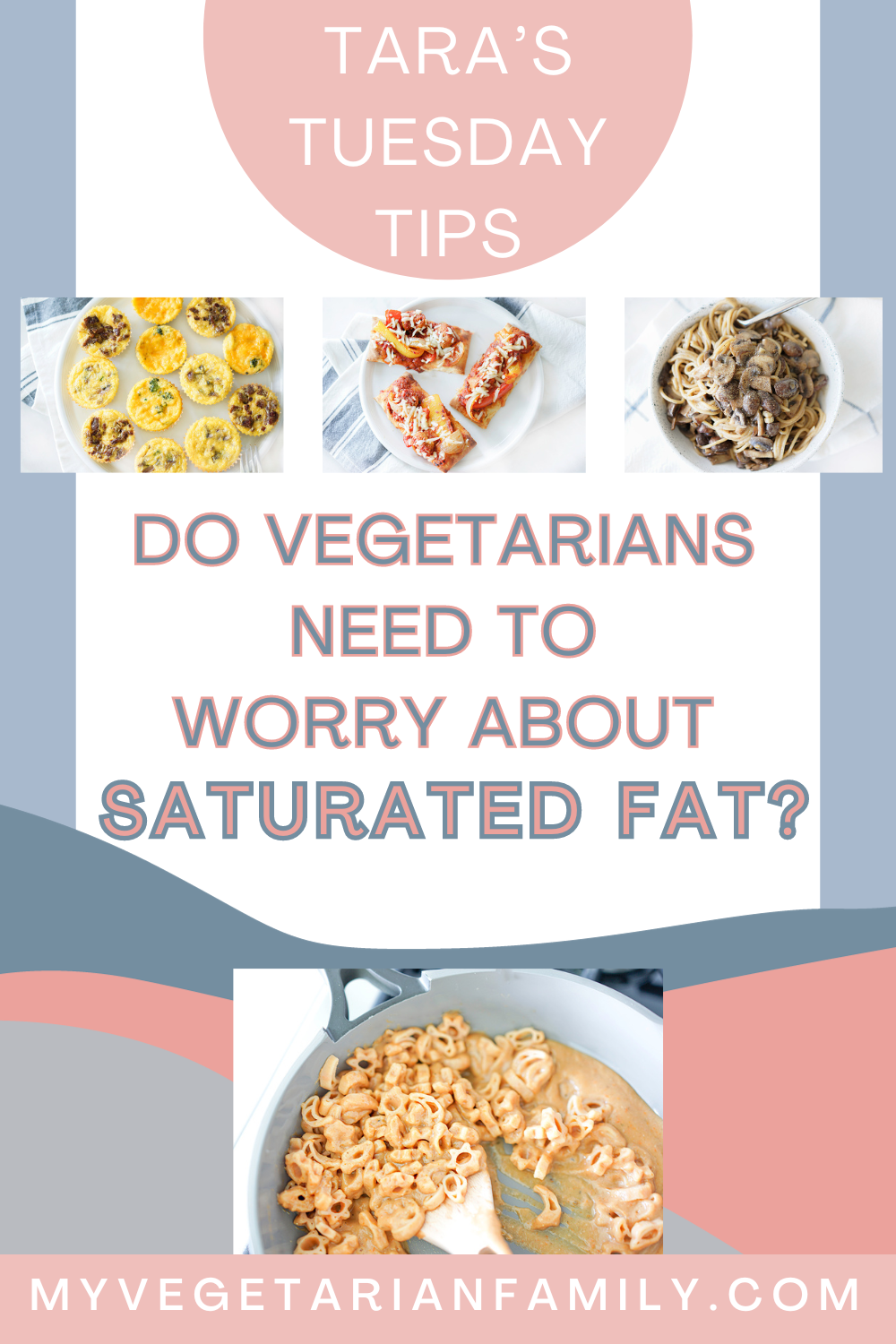
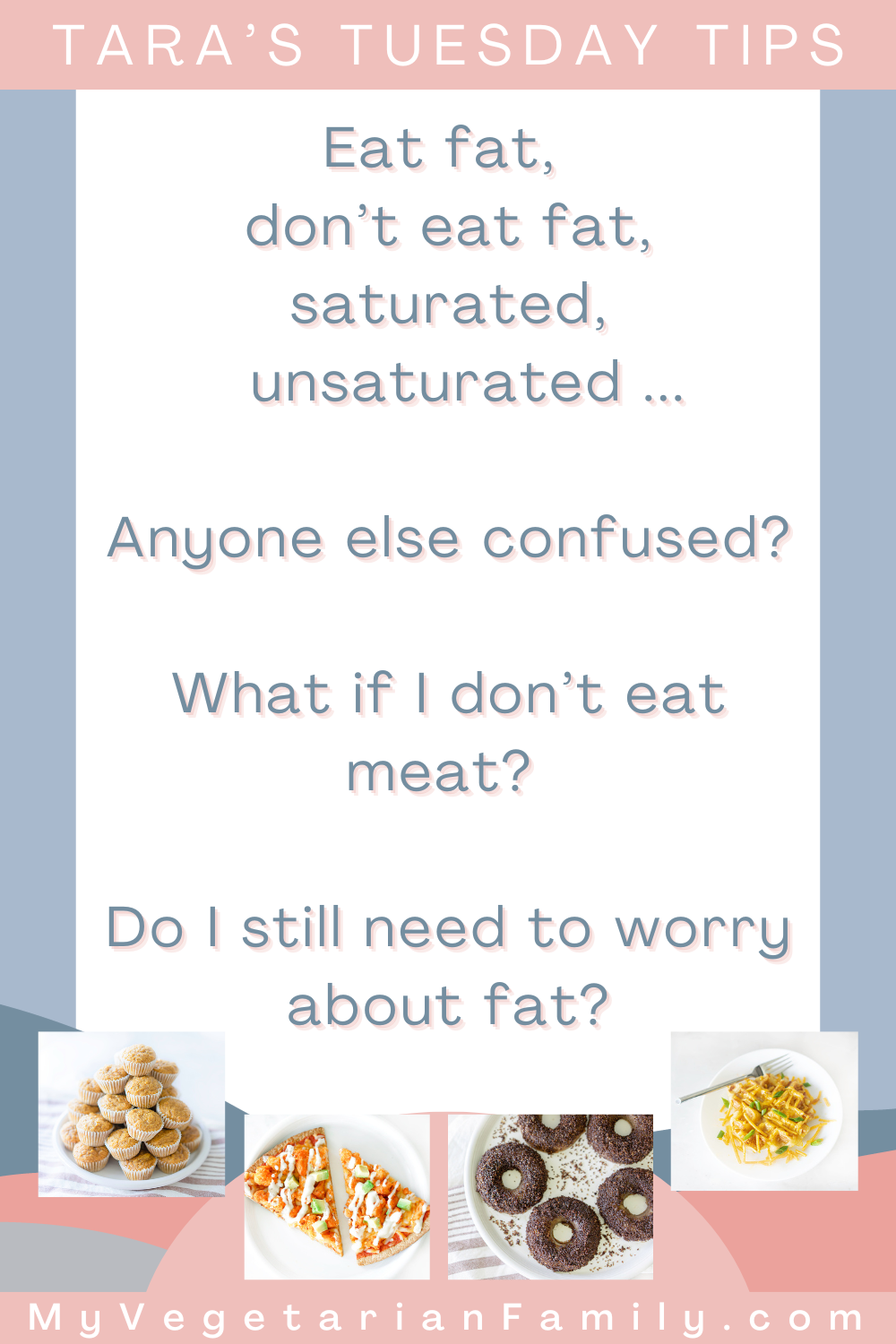
⭐ Did you learn if vegetarians should worry about saturated fat? Let me know in the comments below!
📸 I love to see your creations! Follow me on Instagram @myvegetarianfamily and hashtag it #myvegetarianfamily
📩 Be sure to subscribe here to my weekly emails for tips + recipes so that you never miss a veggie thing!
